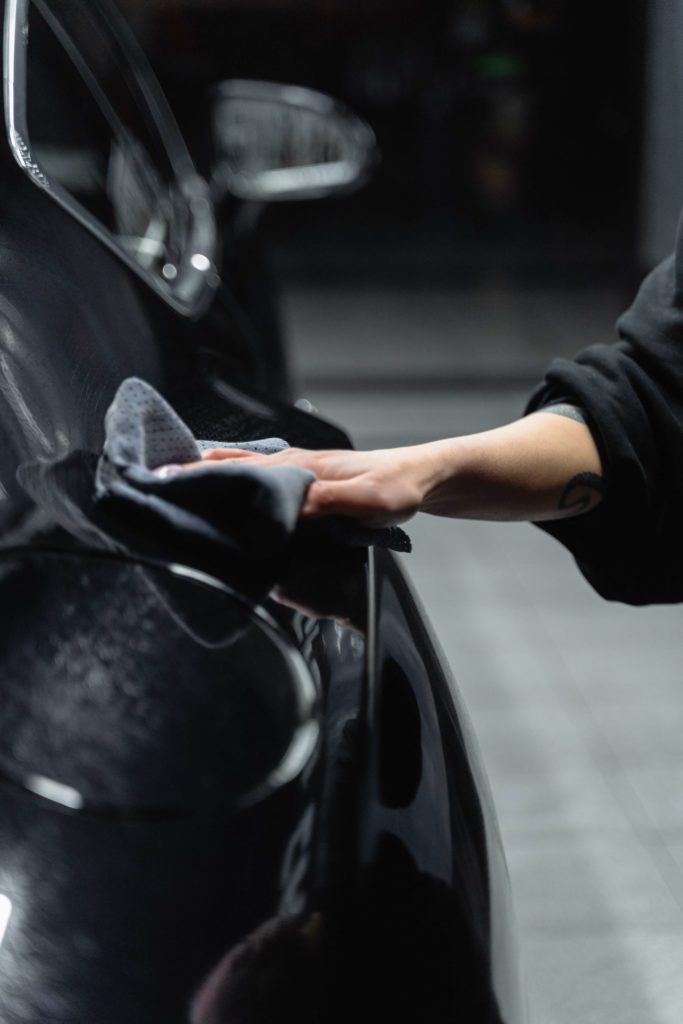Don’t Get Hustled! How to Choose the Right Paint Protection Film Installer
- Posted October 15th, 2022
- •
- Category: Paint Protection Film
Paint protection film (PPF) is a fantastic investment for auto enthusiasts who want to keep their vehicle looking sharp in a world full of door dings, highway grit, and bug splatters.
 When installed correctly, PPF can enhance the ownership experience and protect your vehicle’s resale value — but what happens when PPF isn’t done right, or your installer isn’t certified or reputable?
When installed correctly, PPF can enhance the ownership experience and protect your vehicle’s resale value — but what happens when PPF isn’t done right, or your installer isn’t certified or reputable?
Here are some key points to keep in mind when choosing an installer, so you know you’re getting to most from your paint protection film.
Be smart about your PPF warranty.
The highest quality PPF films, like XPEL, are chemically formulated to be used in conjunction with ceramic coatings, sealants, and aftercare products of the same brand. Unfortunately, some unscrupulous PPF installers will knowingly apply coatings from a different product line on top of XPEL paint protection film as a means of cutting costs.
Not only does this potentially compromise the longevity of your PPF, it immediately voids XPEL’s manufacturer’s warranty, leaving you stuck with the bill if the film fails. Yellowed, cloudy PPF frequently results when installers mix products from different lines.
Choose an installer who offers your premium product line in its entirety, and ensure that they understand the importance of adhering to the manufacturer’s instructions. Your installer should be prepared to provide you with a warranty card detailing which products were used on your vehicle at the end of the process. This warranty card will also include your installer’s certification number, the date of your installation, and information about your PPF. It can be used to verify your installation with any detailer in the US who carries the same line of products.
Ask the right questions about your PPF.
It is vital that your installer uses a high-quality paint protection film — ask questions about where the installation will take place. Researching an automotive detailer’s practices won’t provide you with the information you need if your installation gets subcontracted to a different company.
Don’t hesitate to ask:
- If any part of your PPF installation won’t be done in-house
- If any subcontractors who get involved are certified installers
- Which products are used in any third-party detailing shops
- The rationale behind any “too-good-to-be-true” pricing compared to other estimates
- How long the detailing company has been in business. Do you have any reason to suspect the business won’t outlive your 7-10 year manufacturer’s warranty?
If you notice anything that gives you pause, move on to a more reputable installer.
Choose a certified PPF installer.
A certified installer will have the experience and expertise you’re looking for, but that’s not all. Choosing a detailing professional who is certified by the manufacturer of your PPF will help you avoid complications with your warranty if problems arise.
If your detailer intends to subcontract any part of your PPF installation, verify that everyone involved is either a certified installer or working under the supervision of a supervised installer. Fortunately, manufacturers like XPEL make it easy to verify an installer’s certification status online.
Don’t wait to ask about aftercare.
The lifespan of your paint protection film largely depends on how closely you adhere to prescribed aftercare instructions. Make this a part of the conversation when choosing a PPF installer.
A reputable installer will be able to recommend products and practices that will protect your PPF and keep you in compliance with the manufacturer’s warranty. Choose an automotive detailer who looks beyond the initial installation, and you’ll help guarantee the longevity of your PPF.